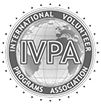About Volunteering
Southern Africa is one of the most beautiful areas in the world, but there is much more to this fascinating region than what the average tourist sees. There are large social inequalities and the growing population is putting more and more pressure on nature. Countless NGOs and other projects, in addition to government programmes, work hard to help people in great need and to protect animals and their habitats. Their work would not be possible without local and international volunteers.
Whether you have volunteered before or whether it is the first time, below we give you some basic information about volunteering, what you need to consider in finding your ideal project and how we select the projects we offer.



